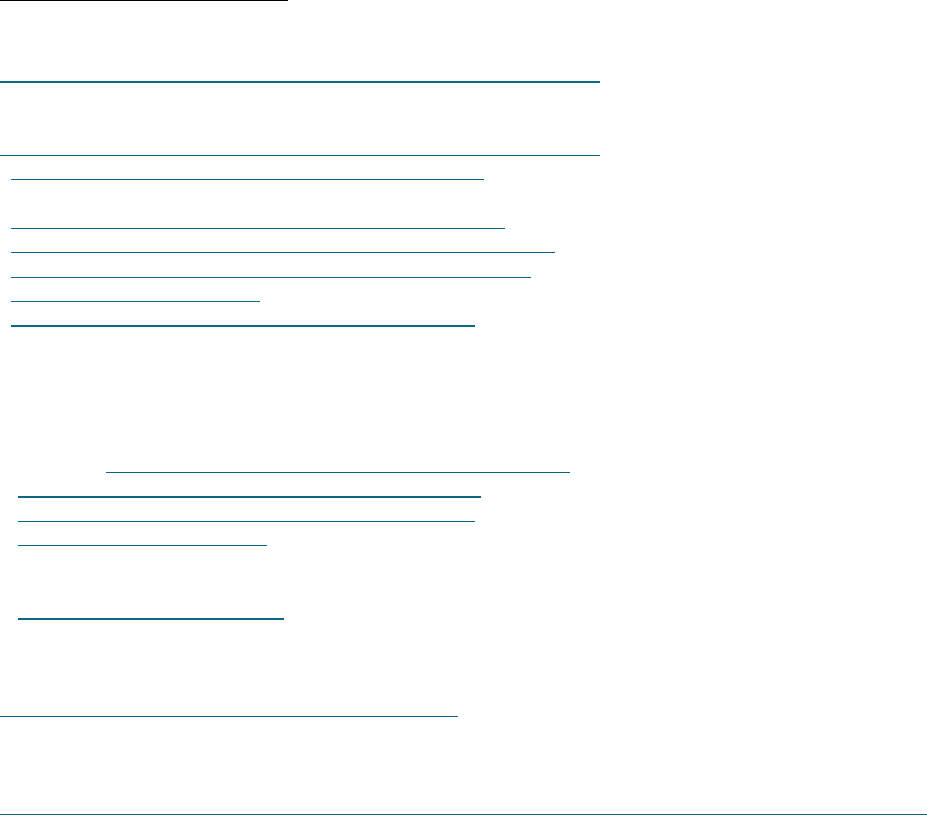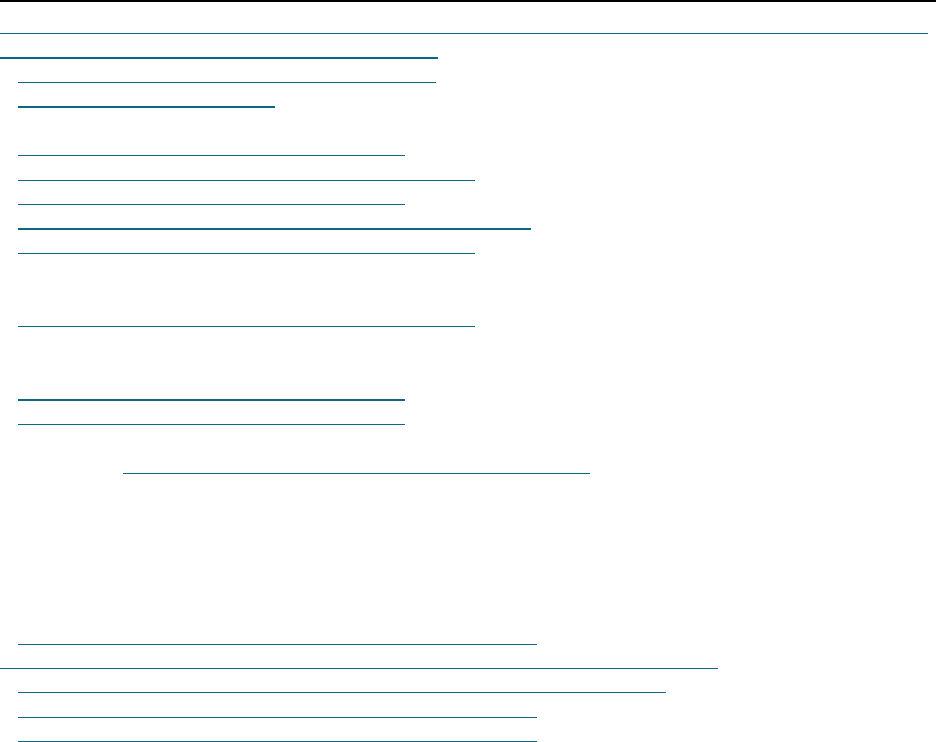
Legal Protections for Lactating
Parents in Wisconsin
WORKPLACE & PUBLIC | NOVEMBER 2019
www.publichealthmdc.com
In Wisconsin, 84 percent of parents have breastfed their newborn infants at least once and 55
percent continue to breastfeed six months after giving birth.
1
This is higher than the national
average, where 80 percent of parents have ever breastfed and 50 percent continued to
breastfeed at six months.
2
Both federal and state laws provide protections and benefits for
nursing parents.
The Fair Labor Standards Act (FLSA) is a federal law that requires some employers to
accommodate their employee’s breastfeeding needs.
3
The Federal Family Medical Leave Act
(FMLA) and the Wisconsin Family Medical Leave Act are federal and state laws that require
some employers to provide unpaid vacation time for employees after the birth of a child.
4
In
addition to workplace protections, nursing parents in Wisconsin have legal protections that
allow them to breastfeed in public locations like parks, restaurants, and stores.
5
Eligible parents also have access to WIC (Women, Infants, and Children Supplemental Nutrition
program) and protections under the Affordable Care Act. WIC provides breastfeeding education
and peer counseling for new parents.
6
The Affordable Care Act also requires most health
insurance plans to provide lactation equipment and counseling for pregnant and nursing
parents.
7
This informative fact sheet provides an overview of federal, state, county, and city
laws that protect lactating parents in the workplace and in public throughout Madison and
Dane County.
THE FAIR LABOR AND STANDARDS ACT
Q: What is the Fair Labor and Standards Act?
A: The Fair Labor Standards Act (FLSA) is the federal law that regulates employment matters
such as overtime and minimum wage rates.
8
The FLSA also requires some employers to
accommodate their employees’ breastfeeding needs.
9
Q: What sort of time and space must my employer provide me to express milk?
A: The FLSA requires employers to provide a space, other than a bathroom, that allows
employees to express breast milk and is free from intrusion from coworkers and the public.
10
Employers are required to provide a reasonable amount of break time to pump milk as
frequently as needed by the nursing employee.
11
If a nursing employee uses what would
otherwise be a paid break to pump milk, the employer must compensate the employee as

Page 2 of 7 NOVEMBER 2019
www.publichealthmdc.com
normal. If a nursing employee takes more frequent breaks than are allowed for all employees,
the employer is not required to pay the parent for the extra break time.
12
Q: Which employers are covered by the FLSA?
A: All employers with 50 or more employees are required to comply with the FLSA’s break time
requirements. Employers with fewer than 50 employees must comply unless they receive an
exemption for demonstrating that compliance with the requirements would impose an undue
hardship.
13
Q: Which employees are covered by the FLSA?
A: The FLSA applies to employees who are covered by the overtime pay requirements of the
FLSA and that work for a covered employer.
14
This means that an employee is generally covered
by the FLSA if the employer is covered by the FLSA and the employee receives overtime pay at
least one and a half times the employee’s regular wage for working over 40 per workweek.
15
The requirements under FLSA apply regardless of the mother’s immigration or citizenship
status.
16,17
Although the FLSA protects undocumented workers, these workers should consult
an attorney for additional information on their specific situations.
18
The Immigrant Justice Clinic
(http://law.wisc.edu/eji/ijc/) and the Community Immigration Law Center
(http://cpcmadison.org/clic/) may be helpful in answering questions related to the FLSA for
undocumented workers.
A list of attorneys, specializing in immigration law, located in and around Dane County, can be
found at https://lawyers.law.cornell.edu/lawyers/immigration-naturalization/wisconsin/dane-
county.
Q: Do I need to notify my employer in advance that I will need to take breaks during work to
express milk?
A: No.
19
Even though employees are not required by law to notify their employer, it may be a
good idea for parents to give the employer advance notice of their intent to take breaks at work
to express milk. This way, the employer can take the necessary steps to plan for absences
during break times.
Q: What if I encounter difficulties in obtaining break time or space to express milk in the
workplace?
A: Employees can file complaints against employers or report violations through the U.S.
Department of Labor's Wage and Hour Division (WHD) website
(https://www.dol.gov/whd/howtofilecomplaint.htm)
20
or by contacting the Milwaukee Area Office

Page 3 of 7 NOVEMBER 2019
www.publichealthmdc.com
of WHD at (414)-297-1590. There are no charges to file a complaint or for the WHD to conduct
an investigation.
FAMILY MEDICAL LEAVE ACT
Q: What is the Family Medical Leave Act?
A: The Family and Medical Leave Act (FMLA) is a federal law that requires covered employers to
provide employees with job-protected and unpaid leave for qualified medical and family
reasons.
21
The birth or placement of a child is a qualified medical reason for FMLA.
22
New
parents can use unpaid leave to initiate and continue breastfeeding without having to balance
work and child care. In addition to the federal FMLA there is Wisconsin FMLA that provides new
parents with similar rights.
23
Q: Which employers are covered by the federal FMLA and the Wisconsin FMLA?
A: The federal FMLA applies to most private-sector employers with 50 or more employees, all
public agencies regardless of the number of employees, and all public or private elementary or
secondary schools regardless of the number of employees.
24
The coverage criteria for the
Wisconsin FMLA are similar to the criteria of the federal FMLA. The Wisconsin FMLA applies to
all employers who had 50 or more permanent employees during at least 6 months of the
preceding 12 calendar months.
25
Q: Which employees are covered by the federal FMLA, and the Wisconsin FMLA?
A: While the federal FMLA and the Wisconsin FMLA are similar, they have slightly different
requirements to be considered a covered employee. The federal FMLA applies to employees
who work for employers that are covered by the federal FMLA and meet other requirements.
The covered employee must have worked for the employer for at least 12 months, have
worked at least 1,250 hours for the employer during the 12-month period immediately
preceding the leave, and must work at a location where the employer has at least 50
employees within 75 miles.
26
The 12 months of employment do not have to be consecutive.
That means any time previously worked for the same employer (including seasonal work) could,
in most cases, be used to meet the 12-month requirement.
27
The Wisconsin FMLA applies to an
employee who has been employed by the same covered employer for more than 52
consecutive weeks and who worked for the employer for at least 1,000 hours during the 52-
week period preceding the leave.
28
Q: What events qualify me for unpaid, job-protected leave?

Page 4 of 7 NOVEMBER 2019
www.publichealthmdc.com
A: Both the federal and Wisconsin FMLA allow an employee to take unpaid leave following the
birth of a child or placement of a child with the employee for adoption or foster care.
29
Q: How much unpaid leave am I allowed to take after giving birth?
A: The federal FLMA entitles eligible employees to 12 workweeks of unpaid leave in a 12-month
period that can be used for the birth of a child and to care for a newborn child in the first year
of birth.
30
The Wisconsin FMLA only allows employees to take 6 weeks of unpaid leave during
the 12-month period following the birth or adoption of a child.
31
The 6 weeks of unpaid leave
granted under the Wisconsin FMLA must commence within 16 weeks before or after the birth
or placement of a child.
32
Q: What if I am eligible for unpaid leave under both the federal and Wisconsin FMLA?
A: Employees aren’t obligated to designate whether the leave they are taking is federal or state
leave, but for an employee who qualifies for leave under both laws, the leave used counts
against the employee's entitlement under both laws.
33
For more information regarding both
the federal and the Wisconsin FMLA read the Comparison of Federal and Wisconsin Family
Medical Leave Laws fact sheet that can be found at
https://dwd.wisconsin.gov/er/civil_rights/fmla/federal_state_law_comparison.htm.
Q: Do I need to notify my employer in advance that I will be taking time off following the
birth of my child?
A: Yes. Both the federal and Wisconsin FMLA require an employee to notify their employer that
they will be taking a leave of absence under the law. The federal FMLA requires an employee to
notify their employer 30 days in advance or as soon as practicable, and the Wisconsin FMLA
requires that notification be made in advance in a reasonable and practicable manner.
34
What
is reasonable and practicable notice depends on the circumstances surrounding the birth.
35
For
instance, in an emergency situation an employee will not be expected to provide advanced
notice.
BREASTFEEDING IN PUBLIC
Q: Does federal or state law protect a parent’s ability to breastfeeding in public?
A: Yes. Wisconsin law allows a parent to breastfeed her child in any public or private location
where the parent and child are otherwise allowed.
36
Further, no person may prohibit a parent
from breastfeeding their child, direct them to move to a different location to breastfeed their
child, direct them to cover their child or breast while breast-feeding, or otherwise restrict a
parent from breastfeeding.
37
This means parents are allowed to breastfeed in restaurants,

Page 5 of 7 NOVEMBER 2019
www.publichealthmdc.com
stores, parks, malls, and other locations. Breastfeeding in public is also not a violation of
Wisconsin’s indecent exposure laws.
38
Q: Are there local ordinances that protect a parent’s ability to breastfeed in public?
A: Madison and Dane County both have local ordinances that permit a parent to breastfeed in
public, and Madison’s breastfeeding ordinance provides additional protections for nursing
parents.
39
Madison’s ordinance protects the “expression” of breast milk in any public or private
location where a parent (biological or surrogate) is otherwise permitted.
40
Expressing breast
milk includes pumping as well as breastfeeding. The one exception to a parent’s ability to
express breast milk under Madison’s ordinance is that the owner of a private residence may
prohibit a parent from breastfeeding or pumping within that private residence.
41
AFFORDABLE CARE ACT AND BREAST PUMPS
Q: What has the Affordable Care Act (ACA) done to support breastfeeding?
A: The ACA requires most health insurance plans to provide support to breastfeeding parents
including providing breastfeeding counseling and equipment for the duration of
breastfeeding.
42
These services may be provided before and after a parent has a baby. These
rules apply to the Health Insurance Marketplace plans and all other health insurance plans,
except for grandfathered plans.
43
Grandfathered plans are plans that were in existence on
March 23, 2010 and haven’t been changed in ways that substantially cut benefits or increase
costs for policy holders. There are two types of grandfathered plans. Job-based plans provided
by an employer and individual plans purchased directly by the policy holder. For more
information about grandfathered plans see https://www.healthcare.gov/health-care-law-
protections/grandfathered-plans/. If a health insurance plan is not grandfathered, it must also
cover the cost of a breast pump.
44
Covering the cost means either paying for a rental for a
parent while they are breastfeeding or paying for a new one for the parent to keep.
45
Plans may
have guidelines on whether the covered pump is manual or electric, how long the coverage of a
rented pump lasts, and when the pump will be provided (before or after birth). Each parent can
decide what is best for them.
Q: What questions should I ask my insurance coverage when asking for a breast pump?
A: Every health insurance has different coverage, and most insurance companies have a toll-
free customer service number people can call and ask questions. Some questions to consider
are:
• What brand of pump can I get?
• What type of pump can I get?
• When can I get my breast pump?

Page 6 of 7 NOVEMBER 2019
www.publichealthmdc.com
• Where can I get my breast pump?
• Where can I receive lactation counseling services? Is there an approved list of
counselors?
• Is there a limit on the number of visits with a lactation consultant?
PREPARED BY:
• Kory Trott, 2015 UW Law Summer Intern
• Allison Valitchka, WIC Dietetic Specialist and Lactation Consultant, Updated for 2018
• Michelle Ubah, MCH Intern, Updated for 2019
REFERENCES
1
Breastfeeding Report Card 2014, page 4. Centers for Disease Control and Prevention National Immunization
Survey 2014 births.
http://www.cdc.gov/breastfeeding/pdf/2014breastfeedingreportcard.pdf
2
Breastfeeding Report Card 2014, page 4. Centers for Disease Control and Prevention National Immunization
Survey 2014 births.
http://www.cdc.gov/breastfeeding/pdf/2014breastfeedingreportcard.pdf
3
https://www.dol.gov/whd/nursingmothers/faqBTNM.htm 29 U.S.C.A. § 207
4
29 U.S.C.A. § 2612; Wis. Stat. § 103.10
5
https://www.dhs.wisconsin.gov/publications/p0/p00165.pdf
6
https://www.fns.usda.gov/wic/breastfeeding-priority-wic-program
7
https://www.healthcare.gov/coverage/breast-feeding-benefits/
8
http://www.dol.gov/whd/flsa/
9
http://www.dol.gov/whd/regs/compliance/whdfs73.htm
10
Id.
11
29 U.S.C.A. § 207(r)(1)(B)
12
“Employers are not required under the FLSA to compensate nursing mothers for breaks taken for the purpose of
expressing milk. However, where employers already provide compensated breaks, an employee who uses that
break time to express milk must be compensated in the same way that other employees are compensated for
break time.” http://www.dol.gov/whd/regs/compliance/whdfs73.htm
13
http://www.dol.gov/whd/regs/compliance/whdfs73.htm, 29 U.S.C.A. § 207(r)(3)
14
http://www.dol.gov/whd/regs/compliance/whdfs23.pdf
15
http://www.dol.gov/whd/flsa/
16
Trejos v. Edita's Bar & Rest., Inc., 2009 U.S. Dist. (E.D.N.Y. Mar. 17, 2009) “whether plaintiffs had green cards or
working papers -- is not relevant to the question of whether plaintiffs are employees under the FLSA.”
17
http://www.uscis.gov/greencard
18
The Federal Department of Labor enforces the FLSA “without regard to whether an employee is documented or
undocumented.” U.S. Dep’t of Labor, Wage and Hour Division, Fact Sheet #48: Application of U.S. Labor Laws to
Immigrant Workers: Effect of Hoffman Plastics Decision on Laws Enforced by the Wage and Hour Division (2008),
http://www.dol.gov/whd/regs/compliance/whdfs48.pdf
19
“In order to facilitate an employer’s ability to provide appropriate space for expressing milk, the Department
encourages nursing employees to give employers advance notice of their intent to take breaks at work to express
milk.” page, 80077.
https://www.huschblackwell.com/~/media/files/businessinsights/businessinsights/2011/01/department%20of%2

Page 7 of 7 NOVEMBER 2019
www.publichealthmdc.com
0labor%20issues%20preliminary%20interpret__/files/nursing%20mother%20preliminary%20interpretation/fileatt
achment/nursing%20mother%20prelim%20interp.pdf
20
https://www.dol.gov/whd/howtofilecomplaint.htm
21
http://www.dol.gov/whd/fmla/
22
29 U.S.C.A. § 2612; Wis. Stat. Ann. § 103.10
23
https://dwd.wisconsin.gov/er/civil_rights/fmla/
24
http://www.dol.gov/whd/regs/compliance/whdfs28.pdf
25
https://dwd.wisconsin.gov/er/civil_rights/fmla/
26
http://www.dol.gov/whd/regs/compliance/posters/fmlaen.pdf
27
http://www.dol.gov/whd/regs/compliance/whdfs28.pdf
28
Wis. Stat. § 103.10(2)(c); Wis. Stat. § 104.01(2)(a); Wis. Stat. Ann. § 104.01(2)(b)
29
Wis. Stat. § 103.10(3)(b)(1)
30
http://www.dol.gov/whd/regs/compliance/whdfs28.pdf
31
Wis. Stat. § 103.10(3)
32
Wis. Stat. § 103.10(3)(b)(1)
33
https://dwd.wisconsin.gov/er/civil_rights/fmla/
34
https://dwd.wisconsin.gov/er/civil_rights/fmla/
35
“When the need for leave is unexpected, the employee must provide notice to the employer as soon as possible
and practical.” http://www.dol.gov/whd/regs/compliance/whdfs28e.pdf
36
Wis. Stat. § 253.165
37
Id.
38
Wis. Stat. § 944.17(3), § 944.20(2) and § 948.10(2)(b)
39
Madison WI, Municipal Code: § 23.37; Dane County Municipal Code: § 34.015
40
Madison WI, Municipal Code: § 23.37
41
Id.at § 23.37
42
https://www.healthcare.gov/coverage/breast-feeding-benefits/,
http://county.milwaukee.gov/ImageLibrary/Groups/cntyHR/Policies/FMLAPolicy111.pdf
43
https://www.healthcare.gov/health-care-law-protections/grandfathered-plans/
44
https://www.healthcare.gov/coverage/breast-feeding-benefits/
45
https://www.healthcare.gov/coverage/breast-feeding-benefits/
